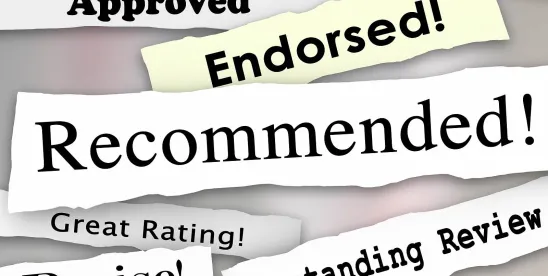The FTC has finalized its new rule banning fake consumer reviews. The rule, which will become effective in October, prohibits selling or purchasing fake consumer reviews or testimonials, buying positive or negative consumer reviews, certain insiders creating consumer reviews or testimonials without clearly disclosing their relationships, creating a company-controlled review website that falsely purports to provide independent reviews, certain review suppression practices, and selling or purchasing fake indicators of social media influence. These are all common tactics that the FTC says distort the signals relied on by consumers to choose products.
The primary components of the rule are as follows:
- Fake or False Consumer Reviews, Consumer Testimonials, and Celebrity Testimonials: The final rule bars reviews and testimonials that misrepresent that they are by someone who does not exist, such as AI-generated fake reviews, or who did not have actual experience with the business or its products or services. As with prior guidelines, the review cannot misrepresent the experience of the person giving it.
- Buying Positive or Negative Reviews: The final rule prohibits businesses from providing compensation or other incentives conditioned on the writing of consumer reviews expressing a particular sentiment, either positive or negative. It clarifies that the conditional nature of the offer of compensation or incentive may be expressly or implicitly conveyed. The popular practice of buying reviews is also barred.
- Insider Reviews and Consumer Testimonials: The final rule prohibits certain reviews and testimonials written by company insiders that fail to clearly and conspicuously disclose the giver’s material connection to the business. This arguably was already required by the Endorsement and Testimonial Guides, but it is now part of the rule. The rule prohibits a business from disseminating an undisclosed testimonial by an officer, manager, employee, or agent. Finally, it imposes requirements when officers or managers solicit consumer reviews from their own immediate relatives or from employees or agents – or when they tell employees or agents to solicit reviews from relatives and such solicitations result in reviews by immediate relatives of the employees or agents.
- Company-Controlled Review Websites: The final rule prohibits a business from misrepresenting that a website or entity it controls provides independent reviews or opinions about a category of products or services that includes its own products or services. This has been the subject of private litigation in a few industries.
- Review Suppression: The final rule prohibits a business from using unfounded or groundless legal threats, physical threats, intimidation, or certain false public accusations to prevent or remove a negative consumer review. The final rule also bars a business from misrepresenting that the reviews on a review portion of its website represent all or most of the reviews submitted when reviews have been suppressed based upon their ratings or negative sentiment. This means that “sorting” reviews can be risky.
- Misuse of Fake Social Media Indicators: The rule prohibits selling or buying fake indicators of social media influence, such as followers or views generated by a bot or hijacked account.
By creating a rule, the FTC sends a clear message that these issues are considered a priority and that it will seek civil penalties for enforcement. Companies relying on user reviews should ensure that they have user review policies and that they are consistently enforced and up-to-date.




 />i
/>i

